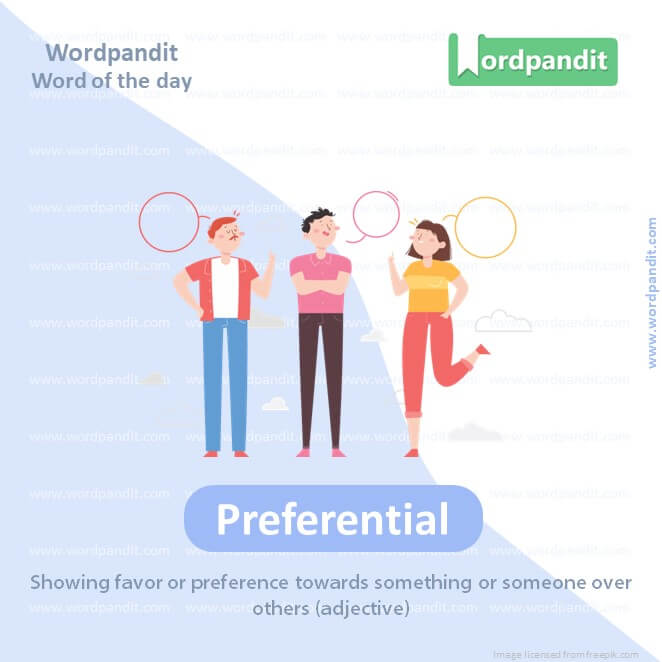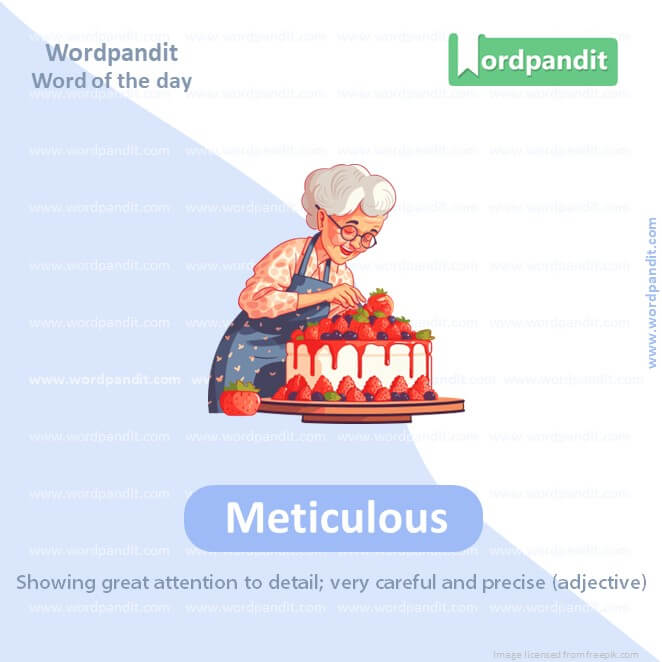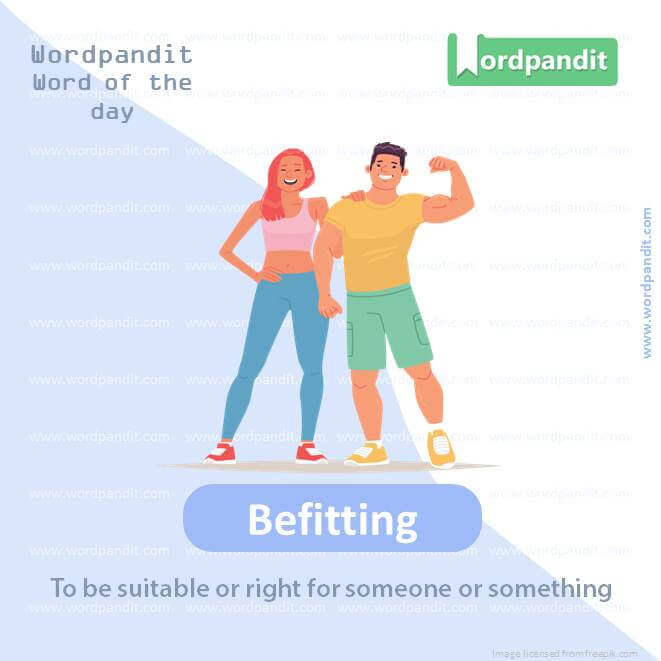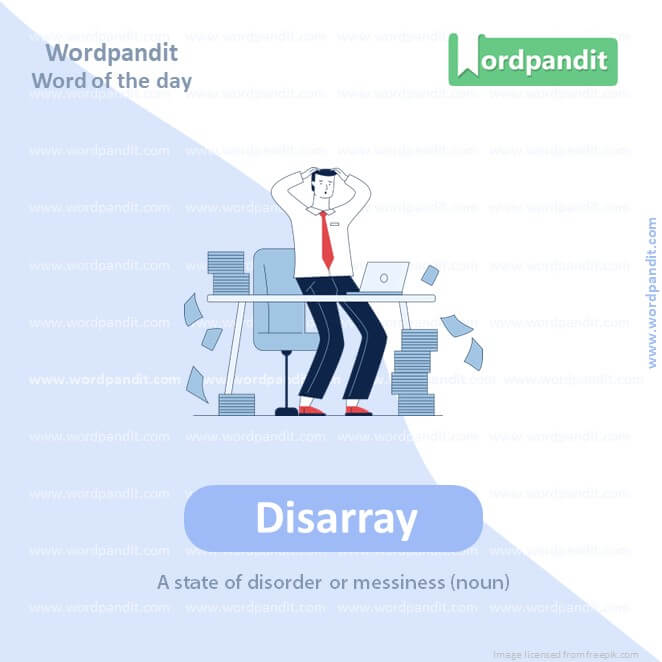Daily Vocabulary Words: List of Daily Used Words in Leading Indian Newspapers
Hi there. Welcome to this special section @ Wordpandit. Our endeavour here is straightforward: highlighting daily vocabulary words that you would come across in leading newspapers in the country. We have included the following newspapers in our selection:
• The Times of India
• The Economic Times
• Hindustan Times
• Mint
• Indian Express
We are putting in extensive work to develop your vocabulary. All you have to do is be regular with this section and check out this post daily. This is your repository of commonly used words; essentially, we are posting a list of daily used words. Hence, this has significant practical application as it teaches you words that are commonly used in leading publications mentioned above.
Visit the website daily to learn words from leading Indian newspapers.

WORD-1: Preferential
CONTEXT: That means equal treatment, unbiased competition and impartially judged outcomes, not equal outcomes achieved by unequal treatment, biased competition and preferential judging.
SOURCE: Indian Express
EXPLANATORY PARAGRAPH: Imagine you have two ice cream flavors, but you really, really like one more than the other. So, you choose your favorite one first because it’s special to you. That’s like giving it a special favor or a special spot in your choice. That’s what “preferential” means – choosing something or someone as a favorite because you think it’s better or more important.
MEANING: Showing favor or preference towards something or someone over others (adjective).
PRONUNCIATION: preh-fuh-REN-shul
SYNONYMS: Favored, Privileged, Priority, Special, Advantaged, Exclusive
USAGE EXAMPLES:
1. Members received preferential seating at the event.
2. The company offers preferential rates to its loyal customers.
3. She argued that the policy was not preferential to any particular group.
4. The law prohibits preferential treatment based on race.
WORD-2: Unbiased
CONTEXT: That means equal treatment, unbiased competition and impartially judged outcomes, not equal outcomes achieved by unequal treatment, biased competition and preferential judging.
SOURCE: Indian Express
EXPLANATORY PARAGRAPH: Think about when you’re choosing a team for a game, and you pick players without thinking about who is your best friend or who you like the most. You just choose based on who can play well. That’s being fair and not letting your likes or dislikes decide. That’s what “unbiased” means – not favoring one side or person more than another, just being completely fair.
MEANING: Not influenced by personal feelings, opinions, or prejudices; fair (adjective).
PRONUNCIATION: uhn-BYE-ust
SYNONYMS: Impartial, Neutral, Objective, Fair, Open-minded, Nonpartisan
USAGE EXAMPLES:
1. The judge must remain unbiased during the trial.
2. An unbiased review of the book was published in the newspaper.
3. It’s important to have an unbiased opinion when making a decision.
4. They sought unbiased advice from an expert.

WORD-3: Meticulous
CONTEXT: The final result doesn’t take away all the meticulous planning — which made India the team to beat — since the Asia Cup.
SOURCE: Indian Express
EXPLANATORY PARAGRAPH: Imagine you’re coloring a picture, and you’re being very careful not to go outside the lines. You’re taking your time to make sure every part is perfect and looks really nice. That’s being “meticulous” – when you pay a lot of attention to every little detail to make sure everything is just right.
MEANING: Showing great attention to detail; very careful and precise (adjective).
PRONUNCIATION: meh-TIK-yuh-lus
SYNONYMS: Careful, Thorough, Detailed, Precise, Exact, Scrupulous
USAGE EXAMPLES:
1. She was meticulous about her work, checking every detail.
2. The meticulous planning ensured the event’s success.
3. He kept meticulous records of his expenses.
4. The artist’s meticulous attention to detail was evident in his paintings.
WORD-4: Galvanised
CONTEXT: a tournament does allow you to get galvanised, and go hard and that’s what we love to do.
SOURCE: Indian Express
EXPLANATORY PARAGRAPH: Imagine you have a toy robot that doesn’t want to move. Then, you put new batteries in it, and suddenly, it starts moving and doing things because of the energy from the batteries. That’s like “galvanising” something – it means to excite or cause someone or something to start doing something or to take action.
MEANING: Stimulated into action; motivated or energized (verb).
PRONUNCIATION: GAL-vuh-nized
SYNONYMS: Motivated, Energized, Stirred, Spurred, Excited, Invigorated
USAGE EXAMPLES:
1. The speech galvanised the crowd into taking action.
2. The team was galvanised by the coach’s pep talk.
3. The threat of losing their home galvanised the community to protest.
4. The crisis galvanised them into working together for a solution.

WORD-5: Nullified
CONTEXT: The low bounce nullified our strength and our aggressive batting was out of the equation as well.
SOURCE: Indian Express
EXPLANATORY PARAGRAPH: Imagine if you made a rule that no one can have cookies before dinner, but then your mom says the rule doesn’t count anymore, and everyone can have cookies whenever they want. She made the rule as if it never existed. That’s what “nullified” means – making something not valid or as if it never was there.
MEANING: Made legally null and void; invalidated (Verb).
PRONUNCIATION: NUL-uh-fied
SYNONYMS: Invalidated, Voided, Cancelled, Annulled, Negated, Abolished
USAGE EXAMPLES:
1. The contract was nullified by mutual agreement.
2. The court decision nullified the law.
3. Their efforts were nullified by the late arrival of the supplies.
4. The game was nullified due to cheating.
WORD-6: Consecutive
CONTEXT: there was always going to be room for defeat and although they suffered two consecutive ones
SOURCE: Indian Express
EXPLANATORY PARAGRAPH: Think about when you line up your toys in a row without skipping any spots, one right after the other. Or when you count numbers like 1, 2, 3, 4, without missing any. That’s what “consecutive” means – things happening one after another without any break in between.
MEANING: Following continuously; in unbroken or logical sequence (adjective).
PRONUNCIATION: kuhn-SEK-yuh-tiv
SYNONYMS: Successive, Sequential, Continuous, Uninterrupted, Successive, Back-to-back
USAGE EXAMPLES:
1. She won the championship for three consecutive years.
2. The team suffered five consecutive losses.
3. He worked for eight consecutive hours.
4. There were consecutive days of rain.

WORD-7: Befitting
CONTEXT: It is our collective responsibility to pay a befitting tribute to Pujya Bapu by making the country Swachh by 2019 when we celebrate the 150th birth anniversary of the Father of the Nation, Mahatma Gandhi.” President’s Address, 2018.
SOURCE: Indian Express
EXPLANATORY PARAGRAPH: Imagine you have a puzzle piece that fits perfectly in a specific spot. It’s just the right shape and size for that place. That’s like when something is “befitting” – it means it’s very suitable or appropriate for a person or situation, just like the puzzle piece fits perfectly in its place.
MEANING: To be suitable or right for someone or something (adjective).
PRONUNCIATION: buh-FIT-ing
SYNONYMS: Suitable, Appropriate, Fitting, Proper, Apt, Right
USAGE EXAMPLES:
1. She wore a dress befitting the formal occasion.
2. The punishment was befitting the crime.
3. They gave him a befitting farewell.
4. The befitting tribute honored his contributions.
WORD-8: Envisaging
CONTEXT: My Government has initiated the Smart Cities programme, envisaging city development in a challenge mode.
SOURCE: Indian Express
EXPLANATORY PARAGRAPH: Imagine you’re thinking about building a huge castle out of blocks before you even start. You’re picturing in your mind how tall it will be, what colors you’ll use, and where each piece will go. That’s “envisaging” – it means to imagine or think about how something will look or happen in the future before it actually happens.
MEANING: Forming a mental image of something not yet existing; to imagine or foresee (verb).
PRONUNCIATION: en-VIZ-uh-jing
SYNONYMS: Imagining, Visualizing, Picturing, Conceiving, Anticipating, Foreseeing
USAGE EXAMPLES:
1. She envisaged a new type of product that could change the market.
2. The architect envisaged a building that would stand out in the skyline.
3. They envisaged a future where peace was possible.
4. He couldn’t envisage living anywhere else.
WORD-9: Scathing
CONTEXT: the Parliamentary Standing Committee on Transport, Tourism, and Culture had cast a scathing critique on the lacklustre progress of funds utilisation within the Sagarmala project.
SOURCE: Indian Express
EXPLANATORY PARAGRAPH: Imagine you’re drawing, and someone says something really mean about your picture, saying it’s the worst they’ve ever seen. That’s like “scathing” – it’s when someone says something very harsh or critical in a way that can hurt feelings.
MEANING: Severely critical or harsh in a way that shows disapproval (adjective).
PRONUNCIATION: SKAY-thing
SYNONYMS: Harsh, Critical, Biting, Severe, Caustic, Acerbic
USAGE EXAMPLES:
1. The movie received a scathing review from the critic.
2. She gave him a scathing look that made him regret his words.
3. His scathing remarks about the project demoralized the team.
4. The essay was a scathing critique of the government’s policies.

WORD-10: Disarray
CONTEXT: the first time at the World Cup, they threw our plans into disarray and we couldn’t counter theirs.
SOURCE: Indian Express
EXPLANATORY PARAGRAPH: Imagine you have all your toys neatly arranged, but then your little brother comes and plays with them, leaving everything scattered and messy. Now, your room is all mixed up and not tidy. That’s what “disarray” means – when things are not in order or are all over the place.
MEANING: A state of disorder or messiness (noun).
PRONUNCIATION: dis-uh-RAY
SYNONYMS: Disorder, Confusion, Chaos, Mess, Clutter, Jumble
USAGE EXAMPLES:
1. The room was in complete disarray after the party.
2. The company was in disarray following the resignation of its CEO.
3. Her thoughts were in disarray, making it hard to concentrate.
4. The sudden news threw their plans into disarray.
Vocabulary Words in English
In the kaleidoscopic world of language, the thread of ‘vocabulary words in English’ weaves a rich tapestry. These words, the building blocks of communication, lend themselves to the eloquence and effectiveness of our speech and writing. Despite their significance, mastering ‘vocabulary words in English’ can sometimes be daunting, but with strategic approach, the process can be greatly simplified.
Learning ‘vocabulary words in English’ goes far beyond rote memorization. It requires an integrated approach that encompasses understanding and using the words. Consuming a diverse range of English materials such as novels, news articles, movies, music, and online content can acquaint you with words in actual use, helping you perceive both their meaning and usage in different contexts.
Furthermore, incorporating memory-enhancing techniques can add impactful strides to your journey of mastering ‘vocabulary words in English’. Methods such as the Leitner System or flashcards can bolster the memory retention of these words. Meanwhile, using mnemonic devices, associating words with unique stories or images, can help in retaining the ‘vocabulary words in English’ in long-term memory.
Another key to deciphering ‘vocabulary words in English’ is by practicing them in real-world contexts. Incorporate the new words into your daily conversations, written emails, or social media posts. Not only will this reinforce the meanings and applications, but also boost your confidence in using them.
In essence, understanding ‘vocabulary words in English’ is a continual journey that calls for persistent commitment, diverse learning approach, and ample practice. As you indulge in this exploration, you will find your command over the ‘vocabulary words in English’ becoming stronger, leading to more confident and dynamic communication. Remember – in the world of language, words are your faithful companions, and the more you engage with them, the more they’ll reveal their richness to you.













